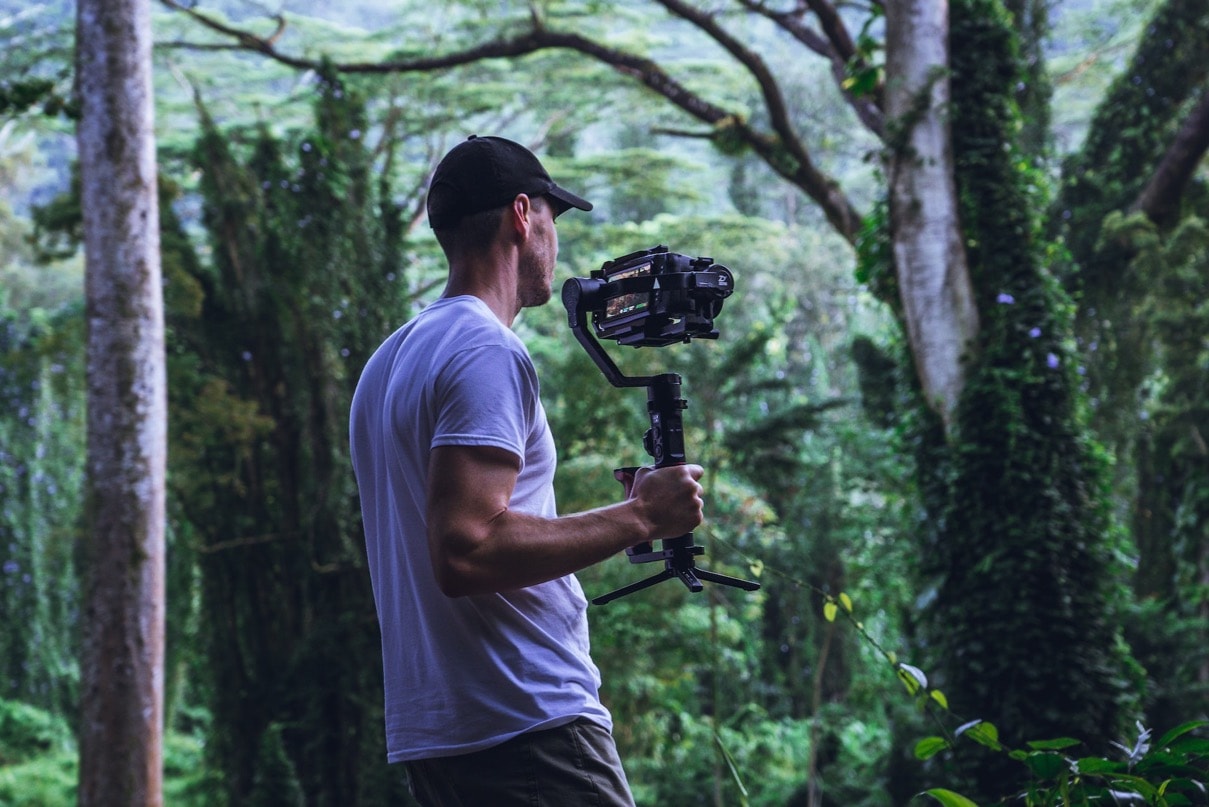
Film producers pull the strings to bring incredible movies to our cinema and TV screens. Behind every brilliant film, there’s usually a huge team that works tirelessly for weeks, months or even years to turn a script or an ingenious idea into a piece of cinematic art. Many people grow up with an ambition or a dream to work in Hollywood or receive a nomination for an Oscar, but being a producer is not always as glamorous as it may seem, and it’s certainly not an easy path to fame or success. If you’re interested in the world of film production, this guide outlines what it really takes to make it.
What does a producer do?
Before discussing how to become a film producer, it’s important to ascertain exactly what a producer does. Film producers take on a diverse range of roles and they have to possess a varied skill set. Producers often work in teams. Most of the blockbusters you see advertised on the TV or giant billboards have several producers. Producers are responsible for overseeing logistics, organizing and managing finances, generating interest from investors, finding writers, creatives and directors and pitching ideas. During production and post-production, producers are actively involved in assembling teams, supervising production staff, managing logistical challenges and ensuring the smooth running of the project. If you’re part of the production team, you’ll need to ensure that the movie is on time and on budget.
Once the production phase is complete, producers take on new tasks during post-production, including deciding how to promote the movie. They also have a say in advertising and distribution and are responsible for making sure that film fans get to see the finished article at local cinemas, film festivals and premieres.
Film producers often work in a group. On a single movie, there could be multiple producers, including executive producers, line producers, creative producers, co-producers, associate producers, impact producers and showrunners. Executive producers are at the top of the tree. In most cases, they have invested their own money into the movie and secured funding from other sources.
How do you become a film producer?
There are several routes you can take to get into film production. Many producers start life as actors or pursue a career in production after working on movies in a different capacity, for example, as part of the creative team. Famous actors that have turned their hands to film production include Will Smith, Drew Barrymore, Clint Eastwood, Brad Pitt, Leonardo DiCaprio, Charlize Theron, Bradley Cooper, Ben Affleck and Matt Damon.
Some people gravitate towards film production after working as agents, writers or studio executives while others study at school to develop the skills necessary to make it as a producer. Some may take acting courses, which have production modules and elements or study business with a view to going into the movie industry.
There is no universal path that all film producers take, but many have a secondary education. Experience is the most valuable asset for producers who want to make it to the top and enjoy a long career. Studying film production is very different from being in a boardroom or on set working on turning a script or an idea into a movie that sells.
What kinds of skills and talents do you need to be a good producer?
Being a film producer requires an array of skills and talents, and this is why this role attracts a broad spectrum of individuals. Film producers are often actors and people with creative talents, but they also often have a background in business, finance and entrepreneurialism. Ryan Kavanaugh is a good example. Many well-known film producers, including Steven Spielberg, also have a wealth of experience in TV production. To excel in movie production, there are some key skills and traits required, including:
A passion for movies
Working as a film producer seems glamorous, especially if you love to watch Hollywood blockbusters and scroll through photos of premieres and film festival red carpets. In reality, being a producer is incredibly hard work, and it involves long, antisocial hours. As a result, it’s essential to have a passion for films and most importantly, for the project you’re working on. If you’re not passionate and enthusiastic about the movie, it’s much more difficult to persuade other people to take an active interest.
Understanding of the movie industry
To be a successful producer, you have to understand how the industry works and what making a film entails. There are all kinds of cogs that need to turn in the right direction to even get a film off the ground, let alone to ensure that it sells thousands of cinema tickets. From financing and legal issues to creative input, logistics and marketing, producers have to be across everything.
Excellent organizational and time management skills
Producers are responsible for making sure that a film runs to time and budget. It is crucial to be organized and to be able to manage schedules and make decisions.
Working as part of a team
Making a movie involves tens, hundreds, or even thousands of people. Good producers can work with others and recognize when to involve other people. Executive producers should be strong, influential leaders that are willing to listen as well as speak. Producers should be able to take advice on board from others and they should create a safe, secure and comfortable working environment where everyone feels valued and respected. If you’re not a team player, it can be very challenging to ensure that everyone is pulling in the same direction.

Creativity
Making films is one of the most incredible ways to celebrate and demonstrate creativity. Successful film producers are creative in lots of different ways. They might have amazing ideas about the content of the film or the way it is shot or presented, but they will also come up with suggestions to market the movie, attract interest among investors or backers or create a buzz among crowds and fans.
Contacts
Building a network of contacts is hugely beneficial in the film industry. Many movies start to take shape as a result of producers using their contacts to source actors, writers, directors and members of creative production teams. Producers may want to hire people they have worked with in the past or they may ask colleagues or friends within the industry for recommendations or advice. Once you start to grow your network, it becomes easier to persuade the best people for the job to get involved with the project.
Money management
Managing money is one of the most important skills for film producers. Producers have to be able to attract investment and pitch movies, but they also have to take control of the budget and ensure that cash is spent wisely. For any movie, no matter how big or small, it’s vital to consider the market value and the level of demand. Producers have a responsibility to use funding sensibly and to maximize the chances of making a profit. Spending huge sums on a film that has a low market value will lead to substantial losses.
Dedication and determination
Forging a career as a film producer is no walk in the park. To reach the top and earn a reputation, producers have to be committed, dedicated, determined and driven. They have to be willing to go above and beyond to make the project a success.
A thick skin
The movie industry is notoriously prickly. Rejection is part and parcel of life, and this means that producers have to develop a thick skin. Almost all of the top producers will have a story to tell that involves rejection and criticism. It’s virtually impossible to get to the top of the tree without having to take negative comments or recover from failure.
Decisiveness
Making decisions is an integral part of the job description for a film producer. Producers make key decisions during pre-production, production and post-production. Making decisions is not always easy. It may involve upsetting others, it may lead to difficult or awkward conversations and it might mean changing plans at short notice. Producers have to be decisive.
Communication skills
Communication is critical when you’re working as a team in any industry. Film producers need to possess excellent communication skills to build strong relationships with financial backers, creative teams, people behind the scenes, actors, directors and other members of the production team. Clear communication creates and fosters cohesion, openness and collaboration and it can also help to lower the risk of delays, mistakes and confusion.

Being a film producer is probably one of the most common roles people have on their list of dream jobs. There are incredible advantages to working as a film producer, but there are also downsides, and often, it’s a lot less glamorous and fun than it seems. Film producers work long hours, they have to make important decisions that might not always be popular and they shoulder a lot of responsibility. To be a successful film producer, it’s beneficial to possess excellent communication, time management and organizational skills, to work well with others and to have an in-depth understanding of how the industry works and what it takes to make and promote a movie.



















